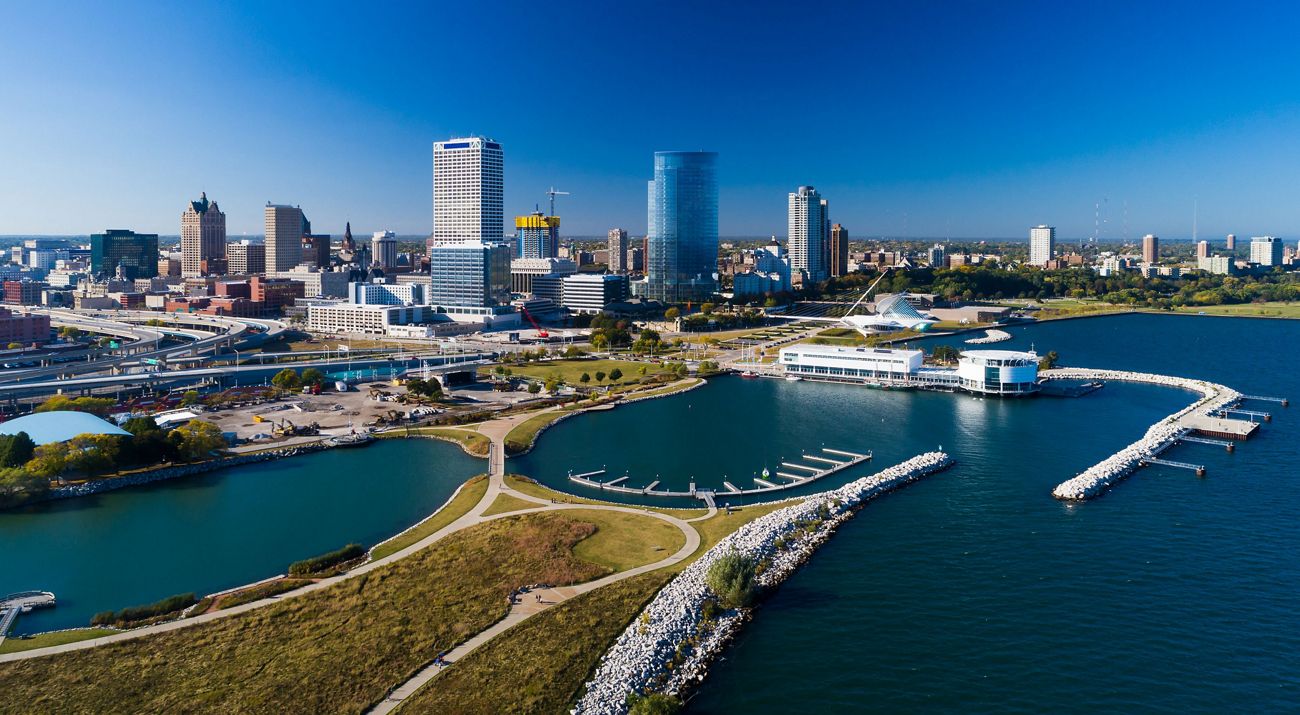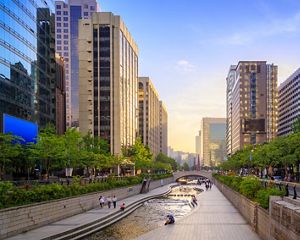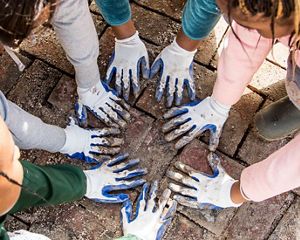Keep in Touch!
Sign up for our monthly Nature News email.
From rivers to beaches and parks to forests, there’s a lot of nature in Milwaukee. There are also many people, communities, and institutions working to increase urban sustainability, get people involved in community-based conservation, and make nature more accessible to everyone.
The Nature Conservancy has joined the effort to address urban conservation challenges in Milwaukee and support and amplify the inspiring conservation efforts already underway.
Milwaukee native Lamont Smith is leading TNC’s work with others in the Milwaukee area. Click on the “Few Minutes with Lamont Smith” tab above to see why he thinks his hometown is special and how he believes TNC can add value to the conservation work happening there.
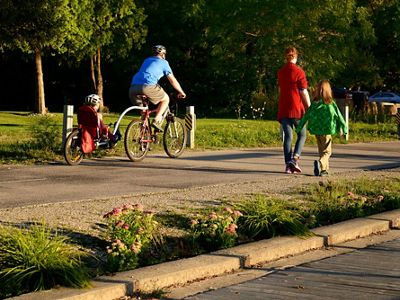
How Nature Can Help Build Healthy Cities
Cities are home to more than 62 percent of the U.S. population and, by 2050, two of every three people on Earth will live in a city. To protect nature, cities can no longer be an after-thought; they, and the people that bring them to life, can be the solution to many of the environmental challenges we face.
Nature can also help cities adapt to the impacts of climate change and enhance community resilience. We call these kinds of projects nature-based solutions (NBS). They include, but are not limited to:
- protecting and restoring wetlands, forests and other natural systems
- restoring natural processes like groundwater infiltration and healthy soils on agricultural lands
- creating new green or natural infrastructure for storm water management
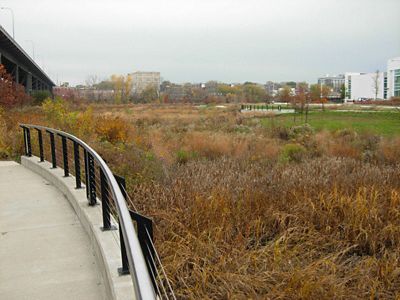
Three Areas Where We Can Add Value
Through a year-long planning process, which included conversations with many Milwaukee stakeholders, we identified three areas where we could help address critical conservation challenges by building partnerships to amplify and complement the work of others:
- Water Quality and Flooding: Support efforts, including the use of green infrastructure (such as wetlands, trees, and rain gardens), that address high priority urban water issues such as flooding and water quality.
- Habitat Quality: Support efforts that conserve and increase greenspace and native species and improve the city’s natural environment.
- Climate Resilience: Build capacity among people and neighborhoods to withstand and manage environmental challenges related to climate change and the urban environment.
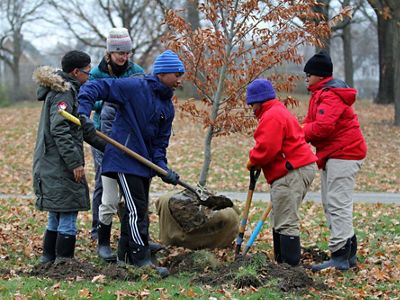
A Greener Future
Do you have thoughts or ideas for how TNC can be a helpful conservation partner in Milwaukee? Please reach out so that we can grow ideas and develop ways for TNC to support efforts that benefit nature and the people that call Milwaukee home. Please contact Lamont Smith, Milwaukee Program Manager at lamont.smith@tnc.org.
A Few Minutes with Milwaukee Program Manager Lamont Smith
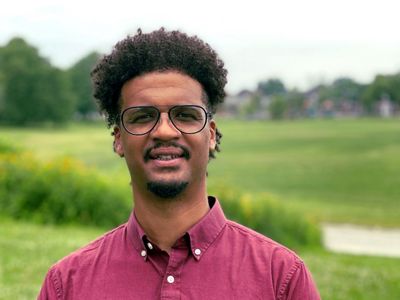
Lamont Smith is The Nature Conservancy in Wisconsin’s Milwaukee Program Manager. The position is new, and Lamont will help kick off and guide TNC’s conservation work with communities and partners in Wisconsin’s biggest city. We caught up with Lamont recently and asked him to share a few thoughts on his new job.
Why did you want to join TNC and what are you hoping this program will be able to do?
Lamont: There's no question that some of the major issues of our time are environmental sustainability and climate change. When I learned that an organization that has been working on these issues across the globe for decades was interested in working in Milwaukee, I thought that was a phenomenal opportunity for the city.
I’ve been very fortunate during my career to have exposure to some of the great work going on in Milwaukee around environmental sustainability. I wanted the opportunity to be more involved in that.
As a Milwaukee native, what's your favorite outdoor spot in the city?
Lamont: I have fond memories of playing in our world-class public park system and enjoying the amenities of the lakefront. We're fortunate we have these environmental assets in an urban setting. There's a lot of urban exploration that can be done in Milwaukee. Being able to get up close with a body of water like the Milwaukee River is my favorite. I can think of the access points in the parks—Kletzsch Park, Lincoln Park, Estabrook Park. Those parklands that interact with the Milwaukee River are wonderful.
What excites you most about the work TNC will undertake in Milwaukee?
Lamont: You can't go too far or too long in conversation about Milwaukee without hearing about new organizations and new people getting involved to support the environment, be it through environmental or food systems sustainability. It’s easy to see the passion that people from all different backgrounds have for this issue in the city.
In addition to all the great grassroots work going on, a lot of our governmental units are doing great work to support efforts to create more sustainable infrastructure in Milwaukee that supports better quality of life. It’s an opportune time for TNC to figure out the best way we can support that work in Milwaukee, and I'm happy to be a part of it.
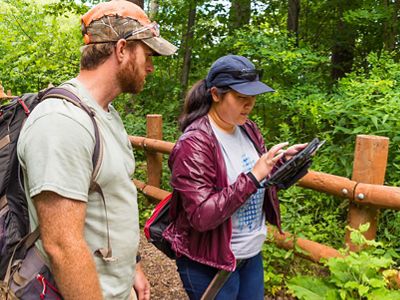
What do you think are the biggest environmental challenges facing Milwaukee?
Lamont: There are lots of intersections. You have the broader infrastructure, the usage of the waterways and the watershed in Milwaukee, and how climate change is impacting all of it. Then you add the management of those resources. We can’t wait another 20 years to figure out how to maximize and sustain our natural resources. A lot of the opportunities we have involve harnessing the energy of various sectors—from government, to the utilities, to people on the ground—that are all looking to get involved and play their part in making the necessary changes to create a sustainable Milwaukee for everyone.
General environmental conservation also has a strong tradition in Milwaukee. We have beautiful, tree-lined streets and reasonable access to park lands even in some of the most distressed areas of the city, but the maintenance and care of these assets are not always at the optimal level. Our natural spaces have also seen plant and insect invasive species threaten the tree canopy and other natural habitats that still exist within the city. I think intensifying the intervention and management of those land-based resources is a major opportunity.
In other areas of the city that have the least access to natural resources—which also often corresponds with areas of increased economic and social distress—we have to undo the legacies of systemic injustice as well as tackle the structural economic shifts of the post-industrial period. I don’t believe Milwaukee will ever return to the level of industrial productivity it saw in the first half of the 20th century, so the trade-off between industrial and natural land use should reflect that. I do think there is growing will and momentum to recognize that reality, adapt, and look at the situation from a more sustainable urban design perspective.
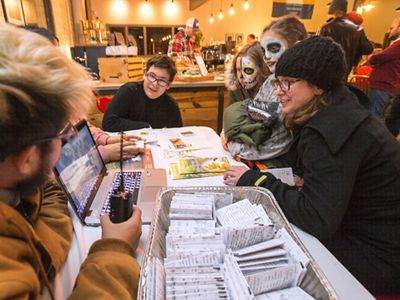
How do we make sure everyone in the city benefits from this work?
Lamont: Milwaukee is a city of neighborhoods. And even within those neighborhoods, there's a hyper-local context, all the way down to the block level. TNC has a lot of experience, know-how, and expertise, to bring to Milwaukee. We need to make sure we take every opportunity to engage at even the most granular level, from local organizations to the individual resident, and find ways to really make sure the resources and technical knowledge we bring are accessible to everyone.
We also need to better understand what people's interests are and how they understand the natural environment where they live and in the broader community. Not everyone wants to get in a canoe, but they likely value shade on hot days and dry basements when there is heavy rain. There are lots of ways that people use and benefit from nature, and we may not know all of them, so it’s important to ask, listen, and understand what people find important based on their perspectives and experiences.
The natural environment is a place where there are shared values and a potential crossroads for people in communities that can otherwise be very different. It's a great opportunity to heighten awareness and understanding, even collaboration, between and among people who live in various communities, including between the rural and urban areas of the state.
How are you thinking about working with neighborhood groups and other entities already working on environmental issues?
Lamont: I've been fortunate to work with a few existing initiatives and organizations that are specifically working on water sustainability issues, including storm water management. I think the key is to make sure that the opportunities to lead and build capacity rest with community partners at the ground level. They're putting in the time and energy, and often making extraordinary things happen by their own force of will and personal magic. That’s the starting point for TNC—to make sure that we're being a good partner to those existing efforts.
What do you love about Milwaukee? What makes the city special?
Lamont: For me, it's a matter of never forgetting where you come from and that “can-do-itiveness” of Milwaukee. It's a city that's based in industry and good humor.
Obviously, we’ve had the tremendous challenge of a global pandemic and historical challenges that have produced grave social and economic inequities. With the right kind of support from prominent institutions like The Nature Conservancy, we can make the most of what we’ve got—natural resources, arts, culture, and the creativity, industriousness, work ethic, and overall goodness that people in Milwaukee have—and recover stronger than we were before.
